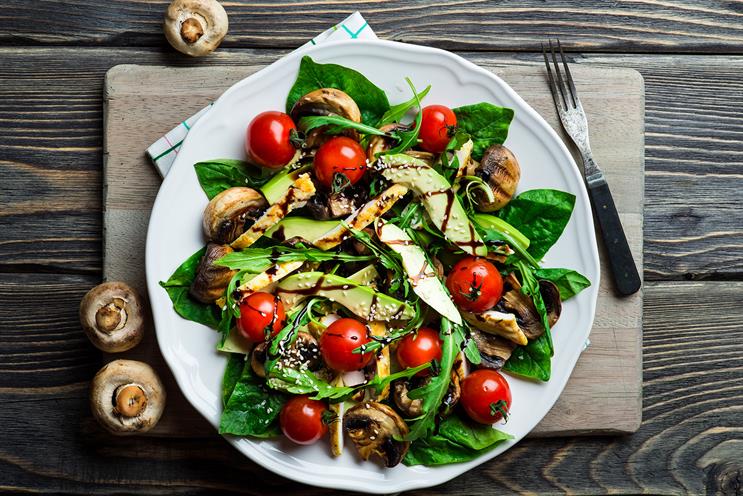It’s Wednesday evening, it’s late, it’s been a busy day and I’m hungry. Yes, I can call the local takeaway and order a pizza, but I did that twice last week and it doesn’t make me feel good. I want wholesome food. I want organic. Although the London food economy is still ruled by unhealthy, over-processed fast foods, times are changing and connected cities in the Silicon Valley are starting to lead the way.
is an international movement all about clean and fair produce that is locally sourced, with a commitment to community and environment. There is also a big emphasis on local traditions, taste and customs. This movement was started by Carlo Petrini in 1986 in the context of protests about a new McDonald’s at the Piazza di Spagna in Rome, and has drawn supporters worldwide – Jamie Oliver for one.
Although the London food economy is still ruled by unhealthy, over-processed fast foods, times are changing and connected cities in the Silicon Valley are starting to lead the way.
Nino Pascale, the president of Slow Food Italy, summarises the philosophy: "Slow Food represents positive globalisation and gives a voice to those who refuse to surrender to an industrial approach to agriculture and the standardisation of food cultures."
Digital drives sustainability
Fast service is providing on-demand access to this growing world of Slow Food. If I were living in Silicon Valley, where the start-up culture sets big expectations for tech employees pulling 80 hours per week, coupled with demands for healthy and locally sourced food options, I would be able to get my meals delivered within 15 minutes – all at the tap of my smartphone. The sustainable food movement powered by the digital economy is creating a revolution in healthy food and connected technologies are giving people access to services that suit their needs.
New players in the on-demand food delivery world have opened our eyes and our bellies to creative meals with a conscience. The US, driven by the tech hub of Silicon Valley, has built the infrastructure to support these new food-delivery mechanisms. This is due largely to their access to technical talent as well as the higher rates of financial investment in start-ups.
One of these innovative companies is San Francisco-based Sprig, delivering meals in just 15 minutes. Its highly intuitive mobile app lets you order seasonal lunches or dinners in three taps; prices start at $9 and everything is fresh, organic and sustainably sourced. Delivery is local, using dynamic pricing, ranging from $1 to $4 depending on the demand. Founded by Gagen Biyan, who previously worked at Lyft, Sprig has been pitched as the Uber of food delivery.
Social consequences
Gourmet-meal services can also make a social impact, addressing the often unspoken imbalance in urban communities. Take Munchery, for example, with hubs in San Francisco, LA, New York and Seattle. You order your daily meal from their curated menu via a simply designed and visually appealing app, perfect for when you’re too busy or too tired to cook. All its food is responsibly sourced and aligned with the Conservation Fund to offset its carbon footprint. But what’s most impressive about its proposition is its goodwill: for every meal ordered through the service, another free meal is provided for a person in need. Sustainable, and helping the local community. While these companies aren’t officially accredited as Slow Food, they are following the principles of good-quality food, which is sustainable and sourced locally.
London hasn’t yet fully evolved to match the likes of Silicon Valley’s demands. There is, however, an early shift in delivery, rather than production and delivery, of on-demand food in the UK. Something that I have been using recently (especially when it’s a late night in the office) is the Uber-like delivery service, Deliveroo. Working as a collaborative model, its mission is to bring the world’s local restaurants into homes and offices. Ordering is intuitive, combining user experience and simplicity in design with real-time visibility of each step in the process. It delivers a quality service and quality food – fast.
Deliverance and its sister company, Injoy, make and deliver meals within the hour, sourced from fresh, sustainable and local ingredients, in line with the Slow Food ethos.
The UK start-up culture is slowly beginning to catch up with the initiatives of California, but we’re behind due to less funding, fewer skilled people and a much smaller penetration of tech inhabitants. Perhaps there’s an attitude involved, too, as the people in Silicon Valley seem to need less explanation for them to quickly adopt new and disruptive services.
New players in the on-demand food delivery world have opened our eyes and our bellies to creative meals with a conscience.
Local appeal
There is, however, a change on the horizon and I’m excited to see more sustainable, on-demand start-ups kick off in London. Our knowledge about healthy-eating is growing our desire to choose locally sourced and sustainable food. It’s clear that our digital-savvy generation is thinking hard about the foods they consume.
Silicon Valley tech is leading access to healthier food choices and placing apps in our hands. At the tap of a button we can replace our traditional (and processed) fast-food economy with healthy options, all delivered in a more favourable 15- to 30-minute window. I don’t want a Wednesday-night pizza delivery, I want on-demand organic, locally sourced, sustainable options.
This shift in culture is a growing contradiction between high-paced city living and the desire to eat with an active conscience. People want fast delivery, but it’s time to foster a more modern-day change along the same lines as Petrini’s Slow Food initiative. The magic of greater technology in connected cities means there is a valuable opportunity on the horizon: to bring these very different aspects of our lives together to fundamentally improve our wellbeing.


